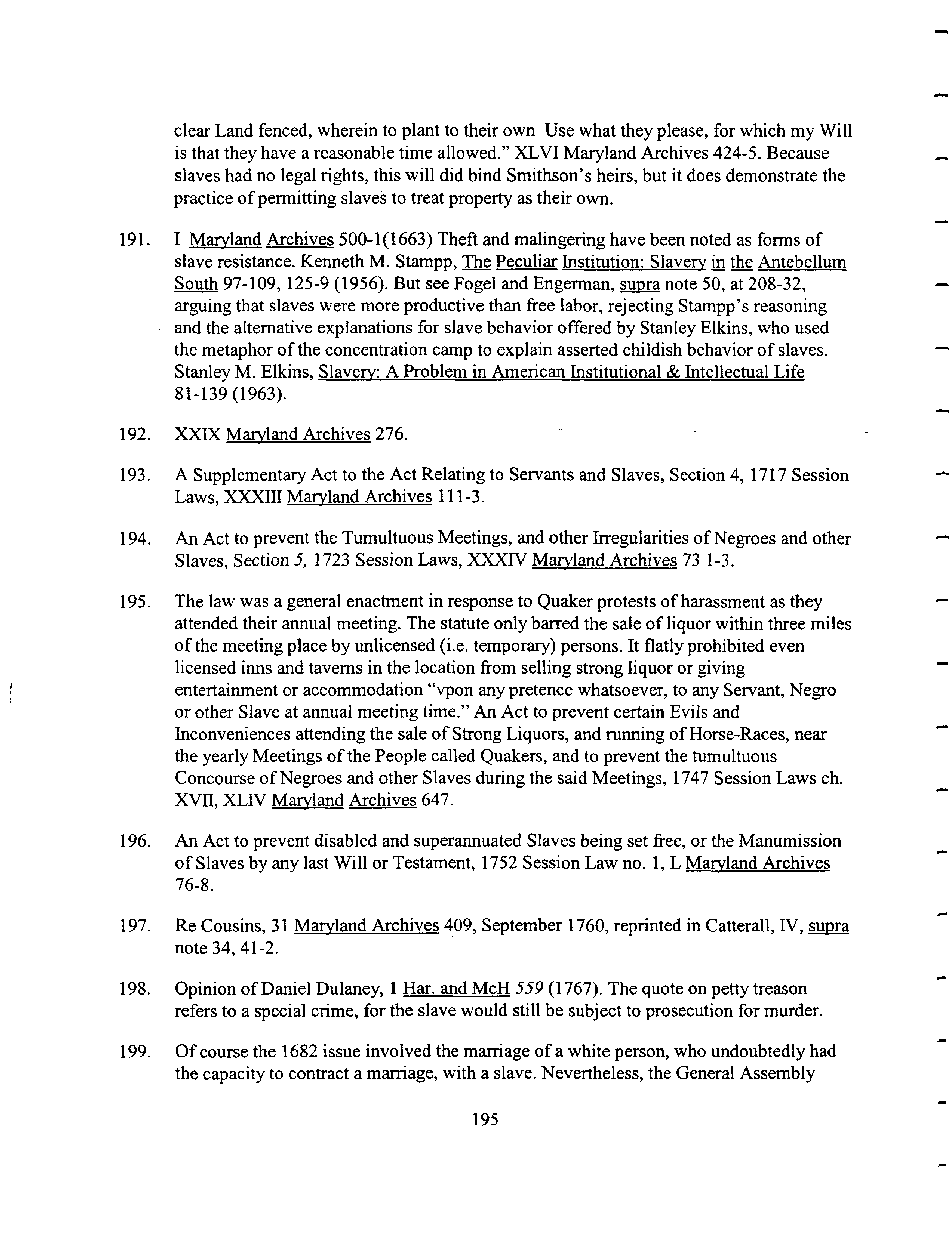|
clear Land fenced, wherein to plant to their own Use what they please, for which my Will
is that they have a reasonable time allowed." XLVI Maryland Archives 424-5. Because
slaves had no legal rights, this will did bind Smithson's heirs, but it does demonstrate the
practice of permitting slaves to treat property as their own.
191. I Maryland Archives 500-1(1663) Theft and malingering have been noted as forms of
slave resistance. Kenneth M. Stampp, The Peculiar Institution: Slavery in the Antebellum
South 97-109, 125-9 (1956). But see Fogel and Engerman, supra note 50, at 208-32,
arguing that slaves were more productive than free labor, rejecting Stampp's reasoning
and the alternative explanations for slave behavior offered by Stanley Elkins, who used
the metaphor of the concentration camp to explain asserted childish behavior of slaves.
Stanley M. Elkins, Slavery: A Problem in American Institutional & Intellectual Life
81-139(1963).
192. XXIX Maryland Archives 276.
193. A Supplementary Act to the Act Relating to Servants and Slaves, Section 4, 1717 Session
Laws, XXXIII Maryland Archives 111-3.
194. An Act to prevent the Tumultuous Meetings, and other Irregularities of Negroes and other
Slaves, Section 5, 1723 Session Laws, XXXIV Maryland Archives 73 1-3.
195. The law was a general enactment in response to Quaker protests of harassment as they
attended their annual meeting. The statute only barred the sale of liquor within three miles
of the meeting place by unlicensed (i.e. temporary) persons. It flatly prohibited even
licensed inns and taverns in the location from selling strong liquor or giving
entertainment or accommodation "vpon any pretence whatsoever, to any Servant, Negro
or other Slave at annual meeting time." An Act to prevent certain Evils and
Inconveniences attending the sale of Strong Liquors, and running of Horse-Races, near
the yearly Meetings of the People called Quakers, and to prevent the tumultuous
Concourse of Negroes and other Slaves during the said Meetings, 1747 Session Laws ch.
XVII, XLIV Maryland Archives 647.
196. An Act to prevent disabled and superannuated Slaves being set free, or the Manumission
of Slaves by any last Will or Testament, 1752 Session Law no. 1, L Maryland Archives
76-8.
197. Re Cousins, 31 Maryland Archives 409, September 1760, reprinted in Catterall, IV, supra
note 34, 41-2.
198. Opinion of Daniel Dulaney, 1 Har. and McH 559 (1767). The quote on petty treason
refers to a special crime, for the slave would still be subject to prosecution for murder.
199. Of course the 1682 issue involved the marriage of a white person, who undoubtedly had
the capacity to contract a marriage, with a slave. Nevertheless, the General Assembly
195
�
|

